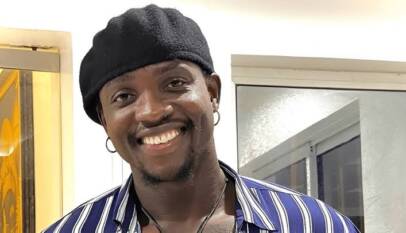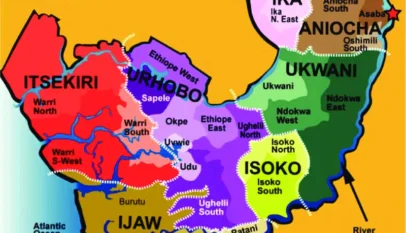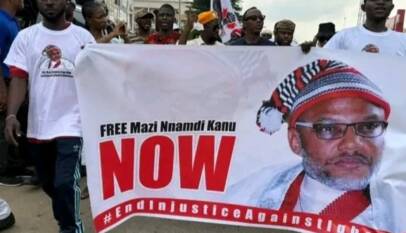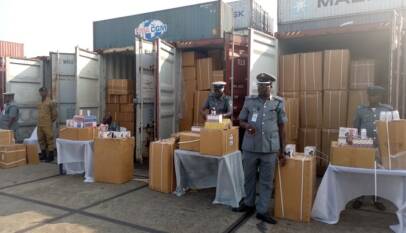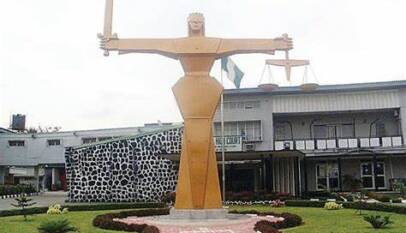By Deborah Nnamdi
Popular Nigerian social justice advocate, Martins Vincent Otse—better known as VeryDarkMan—has expressed serious concern over the country’s weak border control and the inability of immigration authorities to effectively tackle human trafficking. His comments came in response to the recent repatriation of several Nigerian women who had been trafficked to Côte d’Ivoire.
Speaking to the press around 1 a.m. on Sunday at the arrival section of Murtala Muhammed International Airport in Lagos, shortly after the victims’ return, Otse criticized what he called the immigration system’s institutional negligence and misplaced priorities.
“It’s a good thing that the ladies are back from Ivory Coast,” he said. “But the borders are porous. Immigration is not doing enough. They spend time chasing bags of rice and contraband, while hundreds of girls are trafficked out of Nigeria every single day.”
His comments come on the heels of renewed concerns about the scale of human trafficking in West Africa. According to reports, over 500 Nigerian girls are trafficked across borders weekly, lured by promises of jobs and prosperity, often only to end up in exploitative or enslaved conditions.
Otse, who has used his online platforms to campaign against sexual violence and exploitation, said the root problem lies in systemic failure and societal pressure.
“Bringing them back is not the solution. Stopping them from going in the first place is,” he stressed. “Trafficking doesn’t only happen abroad. It happens here too. Kids on the street, begging at traffic junctions, many of them are trafficked.”
He also pointed to cultural and economic pressures as enabling factors, citing the influence of returnees who flaunt wealth in rural communities, often becoming recruiters, directly or indirectly, for the trafficking chain.
“When these so-called ‘big aunties’ come back from abroad and spray money at events, mothers in villages start asking, ‘How did you get this money?’ Then they say, ‘Can you carry my daughter?’ That’s how it starts.”
Otse called for a total overhaul of Nigeria’s border control operations and public sensitization at the grassroots levels. “I have sisters. This is personal for me. Immigration must expand what they do with their time. If we don’t fix this, many of these girls will just keep going back.”
It will be recalled that in a significant breakthrough in the fight against human trafficking, 78 Nigerian girls and young women who were trafficked to Côte d’Ivoire were safely repatriated in the early hours of Sunday morning. The victims arrived at the Murtala Muhammed International Airport, Lagos, at approximately 1:00 a.m., where the National Agency received them for the Prohibition of Trafficking in Persons (NAPTIP).
The rescued victims are currently undergoing medical examination at a health facility in Lagos.




